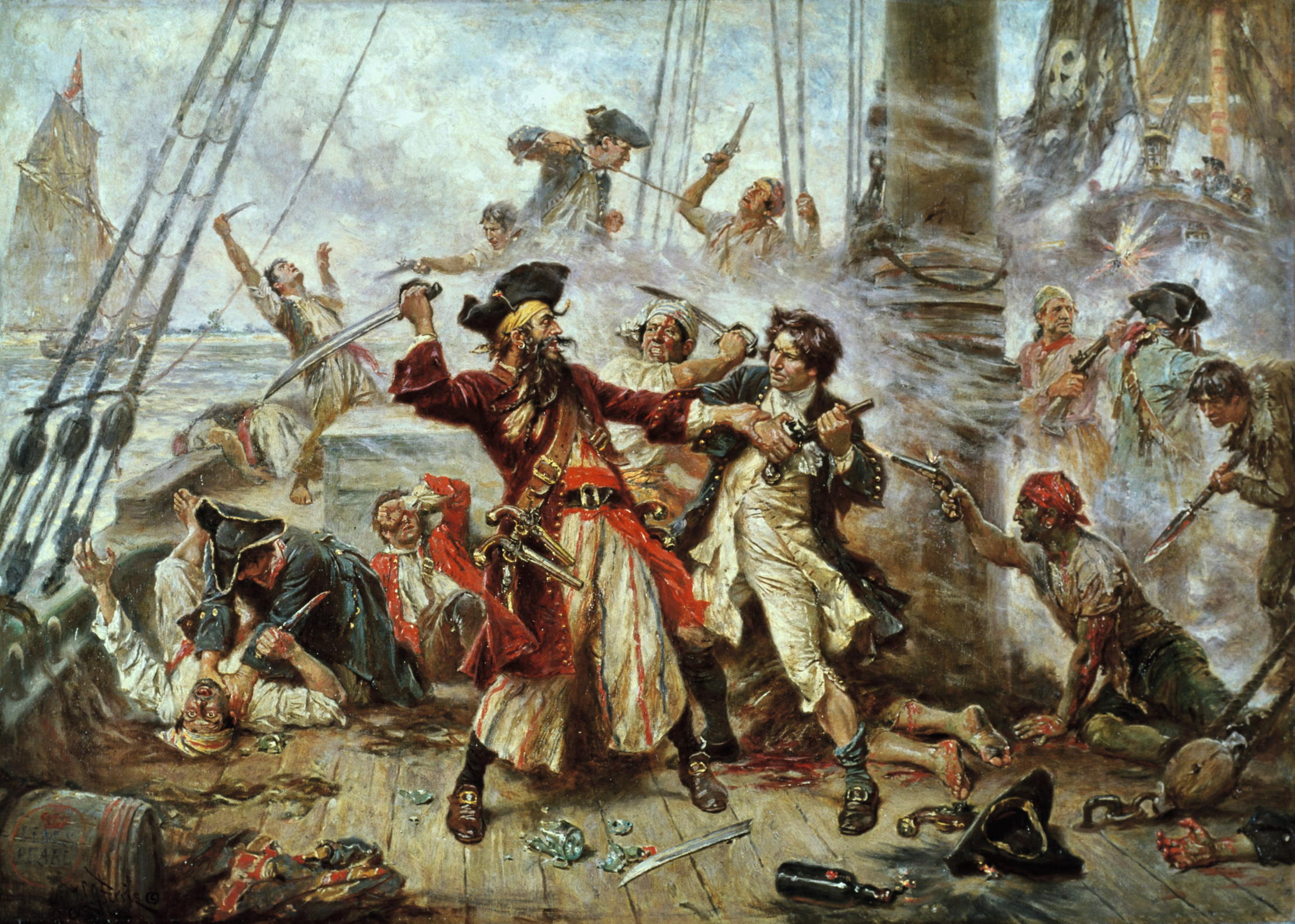'Although exams are important, they are a limited measure of talent and no guarantee of future success': Or, why you shouldn't take your A-Level results too seriously
Throughout history, the character, drive and tenacity of such prodigiously talented 18 year olds as Nelson, Elizabeth I and Brunel have come to define success, rather than exam results alone, contends Alice Loxton.


Today, thousands of 18 year olds across the UK received their A-level results. In one swift glance, years of schoolwork are validated, university places confirmed or denied and future careers mapped out. For those who miss the mark, it can be bitterly disappointing. Pressing questions arise, as marmalade is passed across the breakfast table: ‘So dear, what is it you plan to do with your life?’ or ‘What kind of mark do you want to leave on the world?’ These are, for most of us, near impossible questions, with ‘I don’t know’ being the resounding answer.
For those plunged into this purgatory, it is comforting to note that many figures in British history spent their young lives plagued by similar upsets and unease. Take Horatio Nelson. By the age of 18, he was accustomed to life at sea, with three expeditions under his belt. He’d sweltered in the searing heat of the Caribbean; he knew the ‘raging seas, tremendous rocks, and bulwarks of solid ice’ of the Arctic; he’d visited ‘almost every part of the East Indies’ and endured a nasty bout of malaria. Yet, despite these tales of bravery and bravado, in private, he could be crippled by self doubt, confessing: ‘My mind was staggered with a view of the difficulties I had to surmount and the little interest I possessed.’ He faced moments of ‘long and gloomy reverie, in which I almost wished myself overboard’.
What of young Elizabeth I? A precocious, intelligent and spirited teen, she was nonetheless dogged by anxiety, constantly on the edge of a nervous breakdown. Perhaps this is no surprise when we consider the immense trauma of her childhood: her mother’s execution, the coming and going of four step-mothers, the death of her father, sexual abuse from a stepmother’s husband (who was summarily executed) and beloved half-siblings who became her greatest rivals. Again and again, her future was redirected, her identity recalibrated, her place repositioned within her family, at Court and on the world stage.
At 18 years old, as Elizabeth lay in bed at Hatfield House, Hertfordshire, she was no doubt alert to the creaks of the house. Was that a door in the wind or the arrival of the King’s men, here to take her to the Tower? Could she possibly have imagined the future that lay ahead? Seven years later, the 45-year reign of Gloriana would commence.
'It’s hard to imagine that Isambard Kingdom Brunel — perhaps the greatest engineer of all time — ever doubted his ability. Yet in his early years of work, he was overwhelmed'
It’s hard to imagine that Isambard Kingdom Brunel — perhaps the greatest engineer of all time — ever doubted his ability. Yet in his early years of work, he was overwhelmed by the task ahead. Resigned to settle for mediocrity, he confided in his diary: ‘It’s a gloomy perspective yet bad as it is I cannot with all my efforts work myself up to be downhearted… After all let the worst happen — unemployed, untalked of — pennyless (that’s damned awkward)… I suppose a sort of middle path will be the most likely one. A mediocre success — an engineer sometimes employed and sometime not — £200/£300 a year, that uncertain.’
When we think of Elsie Inglis — Scotland’s answer to Florence Nightingale — one imagines she embodied self discipline and meticulous attention to detail from infancy. Yet Inglis, too, was guilty of teenage sloth. Not long after her 18th birthday, Inglis made a set of resolutions to rid herself of idleness. For everyday tasks: ‘I must devote my mind more to housekeeping.’ To manage her temper: ‘I must give up getting cross.’ To combat sloppy work: ‘I must be more thorough in everything.’ Procrastination was the greatest battle: ‘The bottom of the whole evil is the habit of dreaming, which must be given up. So help me, God.’
Then there was Rosalind Franklin, the super-brain chemist and X-ray crystallographer whose work was central to our understanding of the molecular structures of DNA. Although Franklin was stellar at school and university, she wasn’t perfect and took failure badly. ‘I only got B to B+ for that essay, which is very bad,’ she wrote home, adding — regarding the teacher who marked it — ‘I told you she was an old pig.’ When it came to her musical ability, for Gustav Holst, the music master at St Paul’s, teaching Franklin rather ‘spoilt his optimist belief that everyone had music in them’.
Exquisite houses, the beauty of Nature, and how to get the most from your life, straight to your inbox.
Although Richard Burton grew up to become one of the most celebrated actors in the world, his school days in Port Talbot (when he went by the name Richard Jenkins) were stop and go. Troubles at home forced him to drop out of school and wave goodbye to hopes of a ‘bright future’. Instead, he began a job in the haberdashery department at the local co-op, where he was nicknamed ‘Jenkins Co-op’. It was a total and utter humiliation. ‘I broke my heart over him when he went to the shop,’ remembered his sister, Cis. ‘He hated it. Oh — he hated it.’
It was through the encouragement of an old teacher, Meredith Jones, that he returned to school. Then a mentor, Philip Burton, encouraged the acting dream. They trudged up to the Welsh hills and performed passages of Shakespeare through the whistling winds, to the valleys below. So fruitful was this mentorship that Jenkins became Burton’s legal ward and ‘Richard Burton’ was born.
Self-doubt, anxiety and career confusion have long been part of the teenage experience. Yet it is the uncertainties and setbacks in life — not the successes — that, once overcome, often prove to be the greatest stepping stones. Diamonds, as they say, are made under pressure. For those receiving their results this summer, remember that, although exams are important, they are a limited measure of talent and no guarantee of future success. When we scour the history books, it is the qualities of extraordinary character that carry people to greatness and sparkle from the pages: the courage of Elizabeth I, the vision of Brunel and the determination of Inglis. No AQA paper or Edexcel module, however rigorous, could ever be a measure of that.

The Last Word: 'Portmeirion’s charm is rooted in eccentricity and this is why I love the place'
Pamela Goodman travels to north Wales in a rusty Land Rover Defender, where long walks, wild swimming and a visit

Credit: Simotion via Getty Images/iStockphoto
To Oliver Walston: A visionary, a farmer and a friend
Carla Carlisle writes of her friend Oliver Walston, who was often known for 'thinking the unthinkable and saying the unsayable'

Curious Questions: Why do we still love pirate stories, 300 years on from Blackbeard?
Tales of swashbuckling pirates have entertained audiences for years, inspired by real-life British men and women, says Jack Watkins.
Country Life is unlike any other magazine: the only glossy weekly on the newsstand and the only magazine that has been guest-edited by His Majesty The King not once, but twice. It is a celebration of modern rural life and all its diverse joys and pleasures — that was first published in Queen Victoria's Diamond Jubilee year. Our eclectic mixture of witty and informative content — from the most up-to-date property news and commentary and a coveted glimpse inside some of the UK's best houses and gardens, to gardening, the arts and interior design, written by experts in their field — still cannot be found in print or online, anywhere else.
